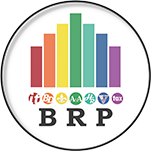By Eric Rosenberg via Investopedia.com

QuickBooks and Quicken are two of the most widely used financial management tools in the world. Both programs come from software developer Intuit (INTU), also the owner of popular personal finance management site Mint.com and the maker of tax filing program TurboTax. Both QuickBooks and Quicken have unique feature sets designed for different uses. Read on to find which tool may be right for you.
QuickBooks Main Features
QuickBooks is a full-featured business and financial management suite complete with tools for accounting, inventory, payroll, tax filing, invoicing, bank account tracking and reconciliation, expense management, budgeting, payment processing, and accounts receivable and accounts payable management.
That feature set is not a complete list of what QuickBooks can do. It can also plug into many additional software tools for added features. Essentially, QuickBooks is the Swiss Army Knife of business financial tools.
Like a Swiss Army Knife, QuickBooks can do just about anything you might need for your business, but there are some features that many businesses will never need, and the high price tag for QuickBooks Professional may be reason to look elsewhere.
If you run a small to medium sized business and want to ensure you can track all financial information and create reports summarizing any aspect of your business, QuickBooks will not disappoint. Just be aware that there is a learning curve when starting out, and not all features are intuitive when you get the program up and running for the first time. QuickBooks also offers both a desktop version for a fixed fee and an online version accessible through your web browser, tablet, or smart phone for a monthly fee. Some features, such as payroll management and payment processing incur an additional fee regardless of which version you choose.
Quicken Main Features
What QuickBooks offers for small business, Quicken offers for individuals and families. Quicken tracks your account balances, transactions, investments, personal budgeting, loans, and any other part of your personal financial life. The highest end version includes the ability to track rental properties and a small business in addition to your personal information.
These features allow you to turn your computer into your financial command center with updated information from each bank, investment, and credit account downloaded right into Quicken. You can also track investments with cost basis to best understand the tax implications of buying, selling, and how you are building your portfolio.
The business tools are much more limited than those with QuickBooks, but work just fine for a family with a rental property, or a few, or someone who owns their own side hustle business or sole proprietorship.
Quicken is a desktop product. If you want an online version, look to Mint.com.
The Bottom Line
If you just want to track your personal financial information, Quicken has all of the features you could want. You can track everything related to your family’s finances in one place without a lot of extra hassle.
If you have a small business, you have a tougher decision to make. If you are an independent online freelancer, Quicken’s features may be enough for your business, but if you need anything more robust, QuickBooks is the clear winner in terms of features.
The hardest part is finding the right balance between cost and features, as QuickBooks offers more for business, but also costs more. In rare cases, QuickBooks may offer more than necessary, but in most, QuickBooks is better for business financial management than Quicken.
When starting out, it is important to make a decision that you can stick with, as you cannot easily convert Quicken data into QuickBooks, or vice versa. Each has its own download and data storage specifications and the two are not compatible.
If you are looking solely for your business, QuickBooks is clearly the best option of the two, but there are many other online accounting options to choose from as well.
Read more: http://www.investopedia.com/articles/personal-finance/031215/quickbooks-vs-quicken.asp#ixzz3Wkfe6arR
Follow us: @Investopedia on Twitter
Read more: http://www.investopedia.com/articles/personal-finance/031215/quickbooks-vs-quicken.asp#ixzz3WkfDiPuS
Follow us: @Investopedia on Twitter
Read more: http://www.investopedia.com/articles/personal-finance/031215/quickbooks-vs-quicken.asp#ixzz3WkezY5Lt
Follow us: @Investopedia on Twitter
